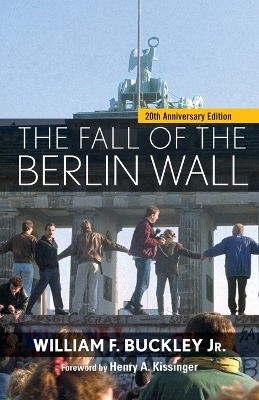Turning Points in History
1 total work
The fall of the Berlin Wall in November 1989 was the turning point in the struggle against Communism in Eastern Europe. The culmination of popular uprisings in Hungary, Poland, and East Germany, the Wall's fall led inexorably to revolutions in Czechoslovakia and Romania, the reunification of Germany, and, ultimately, the disintegration of the Soviet Union itself. Now, America's senior conservative pundit explains how and why the Cold War ended as it did - and what lessons we can draw from the experience. Writing with his usual perspicacity and wit, William F. Buckley, Jr. brings to life Communism's last gasp, showing how Reagan's hard-nosed foreign policy and Gorbachev's reforms undermined Warsaw Pact dictators, emboldened dissidents, and finally made the dream of freedom a reality in Eastern Europe. Sure to delight conservatives, annoy liberals, and enlighten everyone who reads it, "The Fall of the Berlin Wall" is William F. Buckley, Jr. at his inimitable best. William F. Buckley, Jr. (New York, NY, and Stamford, CT) is an award-winning author, editor, columnist, television host, lecturer, and adventurer.
The father of modern conservative thought in America, he founded National Review in 1955, started writing his syndicated "On the Right" newspaper column in 1962, and began hosting the Emmy Award-winning Firing Line in 1966. His many bestselling books include "God and Man at Yale", "Atlantic High", "Airborne", and ten "Blackford Oakes" spy novels. He has been awarded 35 honorary degrees and received the Presidential Medal of Freedom in 1991.
The father of modern conservative thought in America, he founded National Review in 1955, started writing his syndicated "On the Right" newspaper column in 1962, and began hosting the Emmy Award-winning Firing Line in 1966. His many bestselling books include "God and Man at Yale", "Atlantic High", "Airborne", and ten "Blackford Oakes" spy novels. He has been awarded 35 honorary degrees and received the Presidential Medal of Freedom in 1991.
